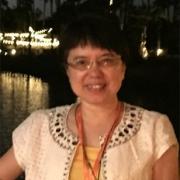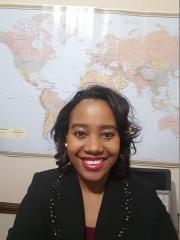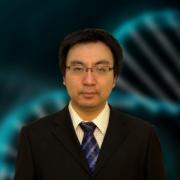Advanced Data Analysis Workshop![]()
Wenjun Bao, Ph.D., Chief Scientist and Sr. Manager at JMP Life Sciences, SAS
Data scientists from the SAS / JMP Life Sciences division will offer an advanced level hands-on workshop to MCBIOS Society conference attendees. During this workshop, attendees will analyze one or more complex experiments and discuss various statistical methods and concepts. Attendees will be able to follow along on their laptop.
Depending on the problems, topics can include: Design of Experiments, Quality Assessment, Normalization, ANOVA and Mixed Modeling, Reproducibility, Pattern Discovery, Predictive Modeling, Genetic Marker Screening, Genome-Wide Association Study, Population Analysis, Marker-Assisted Breeding and Cross-Evaluation, Best Linear Unbiased Prediction, Linkage Mapping, Quantitative Trait Loci, Bioassay, Clinical Trials, Bioequivalence, Method Comparison, Calibration Curves, Limit of Quantification.
JMP software will be used, with dashboards created by JMP Genomics and JMP Clinical
Dr. Wenjun Bao will provide this workshop from JMP/SAS. Dr. Bao is Chief Scientist and Sr. Manager at JMP Life Sciences, SA
Workshop II
Career Development Workshop for Young Scientists
Inimary Toby, Ph.D., Computational Biologist II, Dept. of Clinical Sciences, University of Texsas Southwestern Medical Center
The goals of this workshop are:
1) To present trainees with a breadth of career-related resources
2) To provide a framework for career trajectory and planning activities
3) To complete exploratory career tasks using media and live discussions
4) To assist trainees in creating an individualized career development plan (IDP)
Topics that will be addressed include: how to navigate a postdoc, marketing as a grad student, solving computational challenges with limited resources, goals-driven Science, and managing “big” expectations.
Dr. Toby is currently a Senior Computational Scientist at the University of Texas Southwestern Medical Center in Dallas, Texas. She received her Ph.D. from the Ohio State University, College of Medicine in Biomedical Science with a concentration in Organ Systems Biology. Following that, she pursued postdoctoral training with the Genomics group at The Civil Aerospace Medical Institute in Oklahoma City. She has been the recipient of several NIH research grants during her doctoral work and subsequently received a postdoctoral research grant from the National Academies of Sciences. She has received additional fellowship awards from the American Physiological Society and participated in outreach initiatives aimed at increasing the pipeline of K-12, undergraduate and post-baccalaureate trainees into STEM careers. Her research interests include utilizing computational methods to facilitate the analysis of specialized next-generation sequence data and mainly developing strategies to enable accurate interpretation of information from open source software and data repositories.
MCBIOS - No-Boundary Thinking Joint Bioinformatics Research Workshop 
Steven F. Jennings, Ph.D., Professor Emeritus of Information Sciences and Bioinformatics, the University of Arkansas at Little Rock
The concept of No-Boundary Thinking (NBT) has been promoted since 2013 when Dr. Xiuzhen Huang (Arkansas State University) first received funding from the National Science Foundation. Since that time, the NBT national group has grown to over thirty members of the Steering Committee representing over twenty institutions from about sixteen states, with the represented research areas including fundamental life sciences, biology, biomedicine, agriculture, biophysics, biochemistry, engineering, computer science, mathematics, and statistics. Following up on the keynote address given earlier by Dr. Jennings, the NBT group presents three research talks that are in the spirit of no-boundary thinking. These speakers will then be joined by Drs. Joan Peckham (Professor, University of Rhode Island) and Xiuzhen Huang (Professor, Arkansas State University) for a panel discussion followed by two cash-card awards for best questions (one reserved for the best question asked by a student; you must be present to win!).
Speaker 1: Daniel Himmelstein, Postdoctoral Fellow, Department of Systems Pharmacology and Translational Therapeutics, University of Pennsylvania
Title: Encoding biomedical knowledge using hetnets
Speaker 2: Hongmei Jiang, Associate Professor, Department of Statistics, Northwestern University
Title: Microbial interactions and microbe-host interactions
Speaker 3: Scott M. Williams, Professor, Department of Population and Quantitative Health, Case Western Reserve University
Title: Evolution as a metaphor for No Boundary Thinking
Panel Discussion:
Joan Peckham, Ph.D., Professor, University of Rhode Island
Xiuzhen Huang, Ph.D., Professor, Arkansas State University
Scott M. Williams, Ph.D., Professor, Case Western Reserve University
Hongmei Jiang, Ph.D., Associate Professor, Northwestern University
Daniel Himmelstein, Ph.D., Postdoctoral Fellow, University of Pennsylvania
Best Question Awards:
Two cash-card awards for best questions; one reserved for the best question asked by a student.
You must be present to win!
Workshop IV
Next-Generation Sequencing (NGS) datasets analysis using Galaxy platform
Binsheng Gong, Ph.D., Visiting Scientist, Division of Bioinformatics and Biostatistics, NCTR/FDA
This workshop is for users who want to acquire the skills required to analyze the Next-Generation Sequencing (NGS) datasets using Galaxy platform. The event is open to all the students, postdocs as well as faculty members who are interested in NGS data processing and analysis with general workflows. The workshop will be a focus on the basic usage of Galaxy platform, with demos covering NGS data quality assessment, read alignment to the genome, gene expression quantification and differential gene expression analysis. Galaxy is an open source, web-based platform for data intensive biomedical research. It provides hundreds of tools for next-generation sequencing (NGS) data analysis, including but not limited to genetic variance calling, transcriptomic profiling, DNA methylation, microbial genomics, pan-genomics, metagenomics, etc. With Galaxy, Wet-lab researchers can manage their data and do most general analysis with short-term training. Galaxy also provides a good way to make research more transparent and more accessible, and improve the reproducibility and robustness scientific research.
Dr. Gong is a Visiting Scientist in Division of Bioinformatics and Biostatistics at FDA’s National Center for Toxicological Research (NCTR/FDA), with expertise in next-generation sequencing technologies and high-throughput data analysis. His studies have significantly advanced the application of bioinformatics methods and systems biology strategies in the basic biological study and translational medicine, and his research achievements have been recognized with several awards from U.S. FDA and from China. He has served as a reviewer for multiple prestigious journals such as Oncotarget, PLoS ONE, Scientific Reports, etc. Dr. Gong has been involved as one of the major investigators in the FDA led SEquencing Quality Control (SEQC) project, and he is the leading author of one Nature Biotechnology paper and co-authors of several others produced by SEQC project. Dr. Gong has more than 30 research papers published in prestigious journals such as Nature Biotechnology, Genome Biology, Nucleic Acid Research, etc. His researches have received more than 350 citations from government agencies, armies, pharmaceutical and food companies and research institutes. Dr. Gong was one of the chapter editors of the first bioinformatics text book for higher institutions in China.
Link for files to use during workshop:
https://1drv.ms/f/s!AhoVJCD0WDMwnxV4EmHnut-XE8cG


